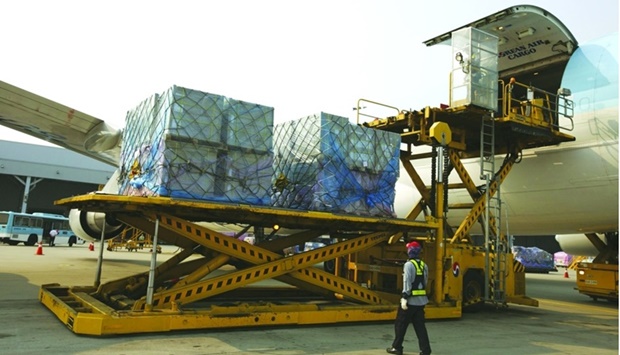| Beyond the Tarmac |
High inflation levels and the increasing fear of an economic recession have had a negative impact on the global flows of goods and services.
In addition, the ongoing war in Ukraine still affects cargo capacity, with a number of important air cargo carriers directly impacted.
As most of the world’s regions recover from the pandemic, post-pandemic consumer spending habits are likely to lean towards vacation travel more than home shopping via e-commerce, International Air Transport Association (IATA) said in a recent report.
The most recent data on global goods trade show that trade maintained a similar year-on-year (y-o-y) growth rate at 5.2% in September.
This stable trade performance is a positive signal to the world economy. Any easing of Covid-19 restrictions in China including factory reopening will support the global trade recovery.
However, most of the uptake in trade since this year has benefited maritime, which has been growing in line with the global trade. Air cargo growth slightly narrowed the gap, with a one percentage point increase in its relative performance compared with the previous month. The Purchasing Managers' Index (PMI) of new export orders – historically a leading indicator for air cargo shipments – remained below the critical 50 line, suggesting continued contractions across the board. The shrinking in international export demand extended into September for US, Japan and South Korea, IATA noted.
Meanwhile, China contracted for a third month in a row, signalling the impact of the country’s Covid-related restrictions on air cargo activities. Regarding Germany, the PMI decreased for the 7th consecutive month since March, marking the largest contraction since mid-2020.
The global PMI contracted for a third month in a row to its lowest level in two years, weighing upon outlook for air cargo demand in the near future.
Global demand, measured in cargo tonne-kilometres (CTKs), fell 10.6% compared to September 2021 (-10.6% also for international operations), but continued to track at near pre-pandemic levels (-3.6%).
Capacity was 2.4% above September 2021 (+5.0% for international operations) but still 7.4% below September 2019 levels (-8.1% for international operations.
Year-on-year inflation, as measured by the Consumer Price Index (CPI) for the G7 countries was 7.7% in September, a 0.2 percentage point (ppt) increase from the August level, remaining at a decade high level. Inflation in producer (input) prices, however, continued to slow down for a second month, to 13.7% in August.
Oil is an important contributor to producer prices, and a major cost to airlines directly. The Brent crude oil price decreased further in September and continues to stabilise at a level of around $88.2 per barrel. The jet crack spread remains unusually wide at around $42 per barrel, though it has come off its high of $64 per barrel set in June.
Middle Eastern carriers experienced a 15.8% year-on-year decrease in cargo volumes in September 2022. This was the worst performance of all regions and a significant decline compared to the previous month (-11.3%).
Stagnant cargo volumes to/from Europe impacted the region’s performance. Capacity was down 2.8% compared to September 2021.
And Asia-Pacific airlines saw their air cargo volumes decrease by 10.7% in September 2022 compared to the same month in 2021. This was a decline in performance compared to August (-8.3%).
Airlines in the region continue to be impacted by the conflict in Ukraine, labour shortages, and lower levels of trade and manufacturing activity due to Omicron-related restrictions in China. Available capacity in the region increased by 2.8% compared to 2021.
“While air cargo’s activity continues to track near to 2019 levels, volumes remain below 2021’s exceptional performance as the industry faces some headwinds,” points out Willie Walsh, IATA’s Director General.
At the consumer level, he noted that with travel restrictions lifting post-pandemic, people are likely to spend more on vacation travel and less on e-commerce. And at the macro-level, increasing recession warnings are likely to have a negative impact on the global flows of goods and services, balanced slightly by a stabilisation of oil prices.
“Against this backdrop, air cargo is bearing up well. And a strategic slow-down in capacity growth from 6.3% in August to 2.4% in September demonstrates the flexibility the industry has in adjusting to economic developments,” Walsh said.


